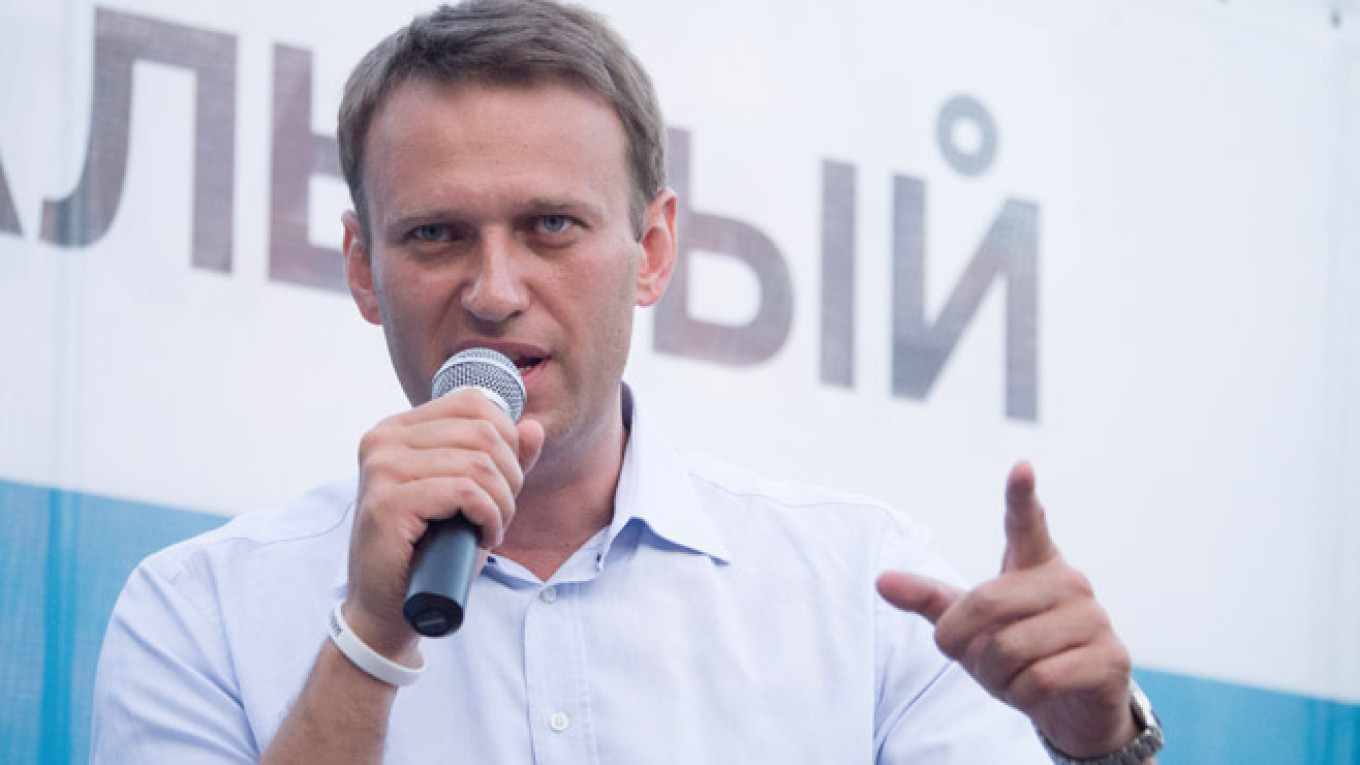A Kremlin-friendly shareholder of Ekho Moskvy attempted to censor an interview that the liberal radio station ran last week with opposition figurehead Alexei Navalny, the assistant to the radio's editor-in-chief said Sunday.
Mikhail Lesin, head of state-controlled media giant Gazprom Media, which owns 66 percent of Ekho Moskvy, phoned the journalists and warned "there would be problems" if the interview was aired, Alexei Venediktov's assistant Lesya Ryabtseva wrote in a blog post on the Ekho Moskvy website.
"The interview is not coming out, and if it does, there will be problems," Ryabtseva cited Lesin as saying.
"As if someone above him had rapped him on the head. 'I forbid it,' he said. 'Do not air the interview, think up some excuse and blame it on me,'" she wrote, describing the conversation with Lesin.
The interview with anti-corruption crusader Navalny, who is currently under house arrest, was conducted by both Ryabtseva and Venediktov and aired on Oct. 15 despite Lesin's warning.
Venediktov made the decision to go ahead with the interview and informed Lesin, who protested and shouted in response, she said.
Venediktov reacted to the blog post by writing on Twitter that he didn't know whether to praise or scold his assistant over it, and that he had told Lesin that media censorship was banned by law.
"I aired the interview. The law was obeyed," Venediktov wrote Sunday.
Ryabtseva said the station had not encountered any problems since the interview's publication, "probably because the interviewee said something that seemed agreeable to the people up above, or, on the contrary, he said nothing that could be interpreted badly," Ryabtseva said.
Navalny said in the interview that if he were to become president, he would not give Ukraine back the Crimean Peninsula, which the Kremlin annexed in March.
Lesin, a former media minister and Kremlin adviser, has been credited with creating RT, formerly known as Russia Today, a state-run English-language channel considered a Kremlin propaganda machine by its detractors and an alternative source of news by its fans.
The appointment of the virulently anti-Western media mogul Dmitry Kiselyov to run the Rossiya Segodnya state news agency, which replaced RIA Novosti when it was liquidated by presidential decree in December, raised concerns that the Kremlin was tightening its grip on both state-run and privately owned media.
In March, Galina Timchenko, the longtime editor of independent news site Lenta.ru, was abruptly dismissed and replaced with Alexei Goreslavsky, the former editor of Kremlin-friendly online publication Vzglyad.ru.
Independent news station Dozhd TV has also faced difficulties, which it blames on authorities. In January, several large cable operators dropped the channel in what its leadership says was a well-coordinated attack by the Kremlin.
A Message from The Moscow Times:
Dear readers,
We are facing unprecedented challenges. Russia's Prosecutor General's Office has designated The Moscow Times as an "undesirable" organization, criminalizing our work and putting our staff at risk of prosecution. This follows our earlier unjust labeling as a "foreign agent."
These actions are direct attempts to silence independent journalism in Russia. The authorities claim our work "discredits the decisions of the Russian leadership." We see things differently: we strive to provide accurate, unbiased reporting on Russia.
We, the journalists of The Moscow Times, refuse to be silenced. But to continue our work, we need your help.
Your support, no matter how small, makes a world of difference. If you can, please support us monthly starting from just $2. It's quick to set up, and every contribution makes a significant impact.
By supporting The Moscow Times, you're defending open, independent journalism in the face of repression. Thank you for standing with us.
Remind me later.


